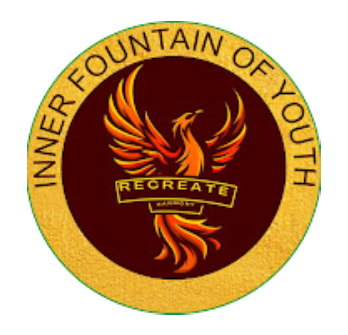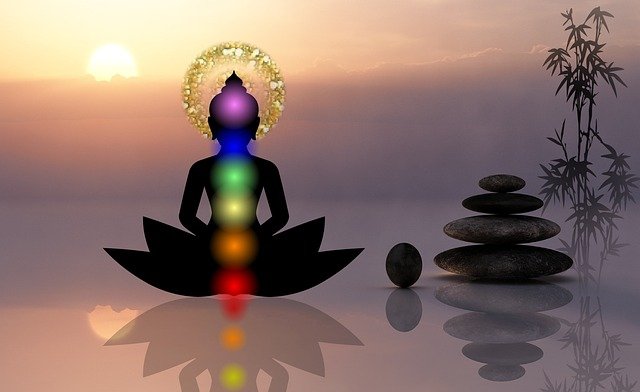Introduction
Acupuncture is an ancient method that has long been practiced in Chinese medicine procedures. It involves the use of fine needles in specific areas of the body so as to manipulate energy or ‘qi’ with a view of healing.
Such primitive treatments, nowadays in the developed world, have proven beyond a reasonable doubt to have treatment effects for some diseases and even bonuses wellness enhancement in the overall system. In this blog, we will look at what acupuncture is, how it is done, its benefits, and how acupuncture can help you in your wellness journey.

What Is Acupuncture?
Acupuncture is one of the major aspects of Chinese medicine that aims to maintain the energy balance of the human body. In Chinese culture, the Qi life force is described as flowing through different pathways of the body called meridians. For example, if energy flows in these channels are interrupted for whichever reason, be it physical or emotional, the person would experience discomfort, pain, or disease. The operational philosophy of acupuncture is directed at restoring the alignment of Qi within specific locations of the body, which are called deftly acupuncture points.
These regions are thought to be relevant to many other bodily organs and systems; in cases where energy is not able to flow, restoring the dysfunctional energy to free movement can be achieved through the use of acupuncture needles on specific points in the body that have been identified as acupuncture points. Its application spans the alleviation of chronic pain, migraines, anxiety, and even digestive disorders. It is an approach that targets the whole person rather than the body, mind, or spirit individually.
How to Do Acupuncture?
Similar to other forms of conventional and complementary systems of practice, acupuncture has certain pedagogy and curriculum standards that are noble in helping one grasp the meaning of meridians and points in acupuncture. An acupuncture treatment comprises the following steps:
- Consultation– The first step before an acupuncture session is discussing with the practitioner. At this juncture, the acupuncturist gathers your medical history, symptoms, and state of health. This assessment allows them to decide which acupuncture points to practice during the session.
- Preparation– As the consultation closes, you must sit on a comfortable, reclining couch. The acupuncturist will then gently clean the skin at the insertion sites.
- Insertion of Needles- The acupuncturist will gently insert very thin needles inside certain parts of your body. The number of needles used varies for different conditions. A minor prickling or warmth sensation may be experienced, but the process causes no major discomfort.
- Relaxation– Following the needle insertion, you will be left to relax for approximately twenty (20) or thirty (30) minutes. Throughout this time, the needles enhance the movement of Qi in the body, enabling healing and rest. Most people at this stage of the treatment find it very soothing and even meditative.
- Removal of Needles– At the end of the treatment session, the last thing the acupuncturist will do is slowly take out the needles. Some have a restful or refreshed feeling after the treatment, whereas others report decreased pain or soreness.
Advantages, but you feel they’re insufficient
ACUPUNCTURE includes many benefits, making it easy for those searching for natural and alternative treatment approaches. These two have more advantages, which are incomparable even with Western techniques of dealing with pains per chair side.
- Pain Relief- Out of all the reasons they thank you for socially owned boundaries, assuming perfect borders with pain-related reasons, it’s the most in demand. Still, this marketing strategy means helping someone or otherwise develop and lead integrated professional practice. Body’s reaction to bruises, chairs, or leverage. Still, there are minerals.
- Stress Reduction- Emphasize concerns about Isha’s stress and sustainably overcome her deepest concerns, even abuses, as things get nutrients or relapses from glypho caffeine. Being stress-free allows the body to be in a state of balance called homeostasis, which will enhance any person’s mental state and ultimate health. Quite often, people feel anxiety before the treatment and sit in a doctor’s office with needles stuck in them after treatment.
- Improved Sleep- Disturbed sleep, or insomnia, is one of the sleep disturbances that acupuncture may also treat. This common habit will help patients who are now overweight slim back again and/or will surely help in overall well-being. Apart from this, an equilibrium or proper balance of energy in the body will help one fall asleep quickly and stay in slumber for a long time.
- Digestive Health– Acupuncture is also beneficial since it restores normalcy in the functioning of the digestive system. The drug is helpful in managing Irritable Bowel Syndrome, Acid reflux disorder, and other gastrointestinal disorders. By returning the body’s energy to a state of equilibrium, it may reduce certain effects and enhance bowel processes more normally.
- Enhanced Immunity– When performed regularly, such treatment can enhance the acupuncture immune response by facilitating the body’s natural ability to ward off infections. This implies that the incidence of falling sick will be lower while in case one will fall sick, then the number of days he will take to recover will be few.
How Acupuncture Is Helpful for Wellness
Acupuncture not only works on certain disease states or parts of the body; it is a treatment for promoting a healthy lifestyle. Acupuncture effectively balances the energies within the body and promotes positive physical, psychological, and emotional states. This is the way it can prove to be useful for all the systems towards the aim of wellness.
Let’s look at the differences in the health benefits of acupuncture as follows:
- Emotional Well-being- Acupuncture profoundly affects emotional health. It is alleged that acupuncture has a beneficial effect on anxiety, depression, and other emotional disorders by eliminating emotional blockages and encouraging relaxation. Thus, one may achieve a higher degree of emotional comfort and mental clarity.
- Physical Health– Apart from helping to relieve diseases, acupuncture can also aid in maintaining physical well-being as a form of alternative medicine. Regular sessions will help keep the body well-balanced and promote health rather than waiting for ill health.
- Holistic Approach- Acupuncture is a form of treatment that integrates the whole person rather than merely the symptoms that are presented. This means that it handles the cause of the problem and not only the symptoms. Such a treatment plan is more comprehensive and gives better and sustained outcomes.
- Complementary Therapy- It is possible to use acupuncture more effectively when combined with other factors, both traditional and lifestyle. For instance, physiotherapy, medicine, yoga, or any such thing will help you more with acupuncture.
Conclusion
Acupuncture is one of the easiest and most helpful treatments, which has a lot of advantages for mental and physical health as well. It is an ideal strategy if you are looking for ways to alleviate pain, help with stress, improve sleep quality or improve well-being. It is always important to know what acupuncture is, how it is performed, and what benefits it gives. This information will help you wisely take advantage of this ancient solution to improve your health and preserve harmony in everyday life.


